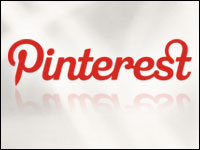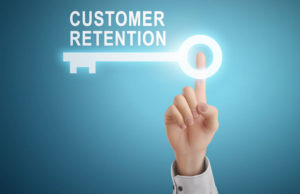
This story was originally published on July 26, 2012, and is brought to you today as part of our Best of ECT News series.
WORX, a power tool company, has a unique Pinterest board: one devoted entirely to tools that aid in zombie defense. The WORX JawSaw, for instance, has a pin that tells consumers to “accessorize before they rise, and protect yourself now!”
The board’s sense of humor makes it especially effective on the social pinning site, according to Tamara Littleton, CEO of social media management company eModeration.
“Pinterest has a lot of humor, and so brands are using a lot of humor,” Littleton told CRM Buyer.
Appeal to the Eyes
Pinterest is all about visual content — links and pictures to products, ideas, projects, fashions and other content. And that visual language is what sets the site apart from other social media.
“Pinterest is more visually focused than textually focused,” Lauren Miller, junior social media manager with Splash Media, told CRM Buyer. “Clients have the opportunity to engage with brands visually. Once you get your clients and customers visually focused with your brand, you can engage with them.”
Businesses using Pinterest, according to Littleton, do best when they don’t focus on promoting their brand but on engaging and interacting with people.
“The brands that are doing well are the ones that get Pinterest,” she said. “It’s not about self-promotion. It’s all about taking the time to look at other people’s content and engaging — leaving comments on other people’s pins, repinning. One of the key things that brands can do is to repin individuals’ content, so it’s very personal.”
That kind of engagement leads, indirectly, to heightened brand awareness and brand loyalty. The content posted by a brand, though, needs to be useful, interesting, and unique enough to catch the attention of the varied and demanding Pinterest community.
“The crucial thing about Pinterest is that it is a community, and the brands that go in and take over do badly,” explained Littleton. “Brands need to act like a person and need to go in and look at other people’s content, repin it, and leave comments.”
Gap does this well, according to Littleton, by setting up a board featuring people who wear Gap clothing and engaging with people.
“Repinning is having a conversation, rather than just trying to broadcast,” she said.
Deeper Value
Businesses are also seeking ways to enhance and monetize the engagement they create on Pinterest, and tools like the iGoDigital Pinterest Tracking tool help them to do that.
“iGoDigital’s Pinterest Tracking Tool enables its retail clients to gather Pinterest data and use it to influence marketing and merchandising decisions,” Eric Tobias, president of iGoDigital, told CRM Buyer. “Whereas site analytics are limited to showing Pinterest as a traffic source, the iGoDigital Pinterest Tracking Tool gives retailers the ability to dig deeper.”
Retailers add the “Pin It” button to iGoDigital’s product recommendations, and they can begin to identify people who pin products, analyze their spheres of influence, and estimate revenue associated with their Pinterest activity.
“We believe that tools like these will continue to emerge due to the necessity for businesses to insert themselves in the Pinterest conversation,” said Tobias.
Initiate a Conversation
Pinterest, in its current form, is primarily about having conversations with clients, customers, partners and other businesses. It’s an open sharing of ideas, like innumerable scrapbooks shared with anyone who cares to take a look and strike up a conversation.
“It’s less about the hard sell and more about the conversation,” Jonny Rosemont, head of social media with DBD Media, told CRM Buyer. “Don’t ever be aggressive to push product. In fact, the platform actually asks for people to ‘avoid self promotion,’ and unsolicited advertising is also not allowed. That said, with the e-commerce giant Rakuten having heavily invested in Pinterest, the site is no doubt looking at ways to monetize, and business has to be a part of that dialogue.”
So far, the conversations on Pinterest seem to be mainly light-hearted, with few reports of disgruntled customers posting problems with products or services, unlike the steady stream of such content — and the need for customer relations crisis management — on sites like Facebook and Twitter. As Pinterest evolves, however, it’s likely to see more of this kind of engagement and the corresponding need for businesses to develop a response strategy.
“I haven’t seen complaints on Pinterest,” said Miller. “It’s easier to handle that kind of thing on Pinterest than it is on Twitter and Facebook. I haven’t seen a lot of it on Pinterest.”






















































